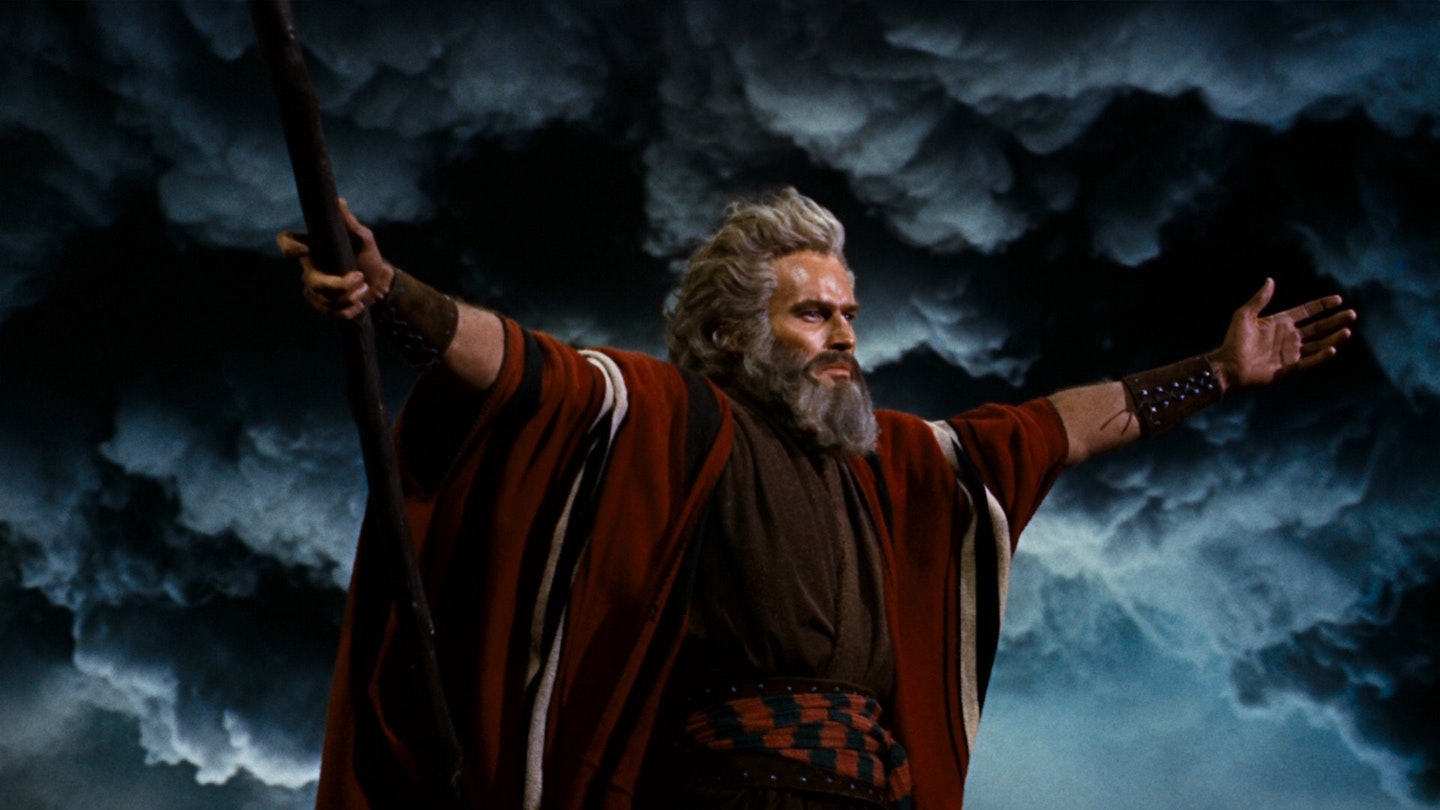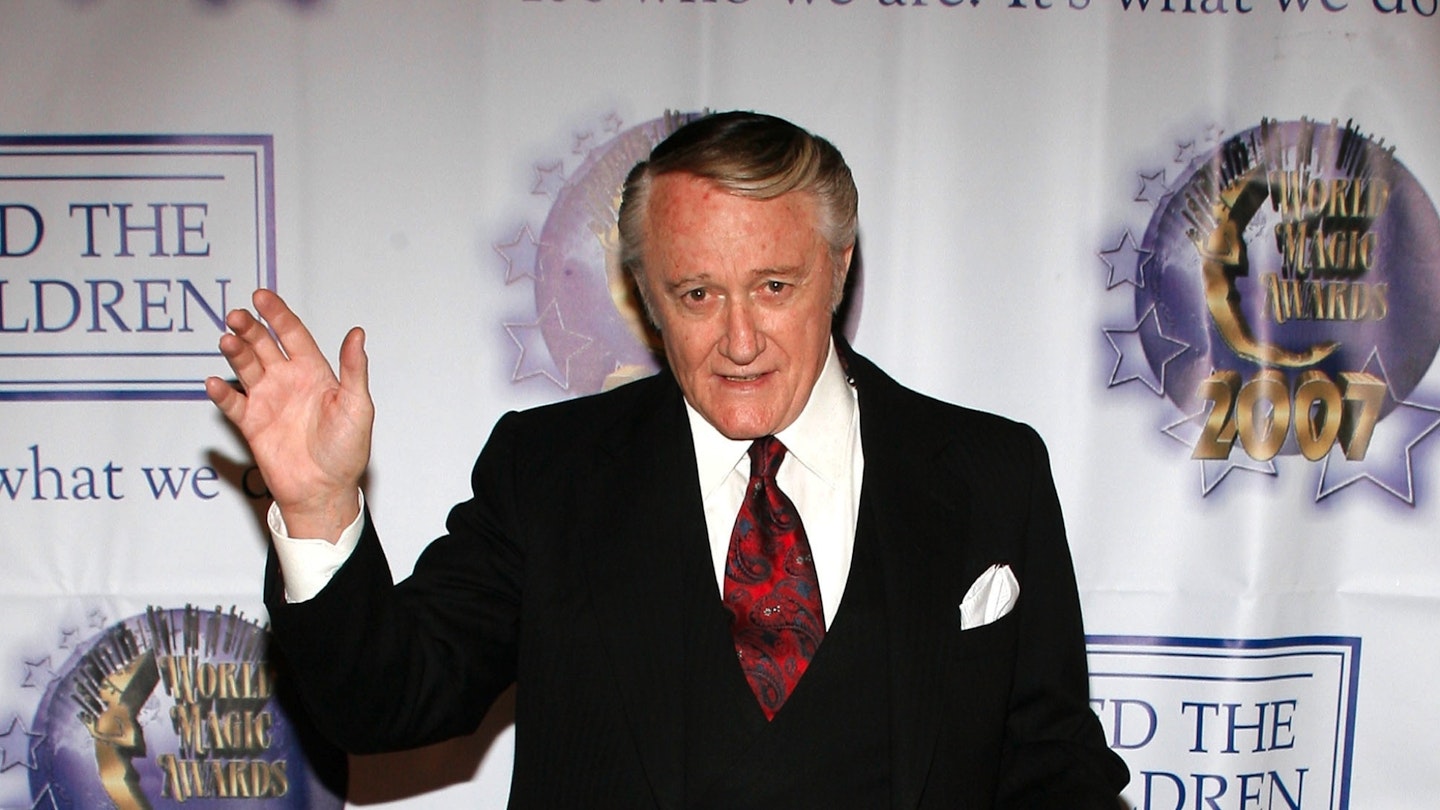Cecil B. DeMille: the name is a kind of instant shorthand for Hollywood in all its brash vulgarity and meretricious splendour. Just as Hitchcock implied suspense and Lubitsch sophistication, DeMille stood for spectacle in an era when these were virtually the only three directors whose names meant anything to the general public.
DeMille crowned his services to the Cinema of Excess with his 1956 remake of The Ten Commandments. With its exteriors filmed on location in Egypt and at a total cost of $15 million, there's nothing at all modest about this movie. Listing "The Cavalry Corps of the Egyptian Armed Forces" among its opening credits, introduced by DeMille in person in a strange Cold War prologue as a celebration of "the birth of freedom" (His hint to communists: "Are men the property of the State or are they free souls under God?") and with Charlton Heston not only playing the part of Moses but also, via some electronic reprocessing, providing the Voice of God, it's a truly monumental film. The story may be familiar, but DeMille rams it home as though he were telling it for the first time with his camera platform as a pulpit linked up by a direct line to the Deity.
It's very easy to snigger at The Ten Commandments' occasionally inane dialogue ("Oh, Moses, Moses, you stubborn, splendid, adorable fool!" is probably the worst excess) and oak panelled plotting, but what justifies the film is DeMille's gigantic self-confidence in taking on such a huge subject, reducing it to his typical formula and then triumphantly delivering the goods in terms of lavish spectacle and deeply chiselled morality. The various plagues visited on Egypt, the Exodus of over 12,000 extras, the pursuit by Pharaoh Brynner's chariots, the famous parting of the Red Sea, the Pagan revelries around the Golden Calf and Charlton finally taking his tablets are big, big sequences served up by DeMille in his supreme master showman manner.
The special effects and colour may now sometimes seem garish and lurid, but in terms of performance and sheer matinee-level entertainment, this holds up much better than most other religious epics. William Wyler's Ben Hur (1959) and Stanley Kubrick's Spartacus (1960) are much superior films, but both their stories are smaller and even parochial by comparison with this. DeMille's lavish canvas may be vulgar, shallow and pompous (the director himself provides the scene-linking self-righteous commentary), but it would be impossible to imagine any other actors doing better than Heston and Brynner as Moses and the Pharaoh, nor any other director but DeMille powering the story forward with the kind of vain, simplistic arrogance that only an old-fashioned true believer could bring to it.
Somehow, despite all its obvious crassness, The Ten Commandments is a great film. A kind of celluloid Las Vegas, lighting up the desert sky with an overwhelming sense of its own importance, finally it's as fine a tribute to C. B.'s legendary large head as anyone could wish for. Biggest may not always be best, but sometimes just being the biggest is enough. And this is a big film.

